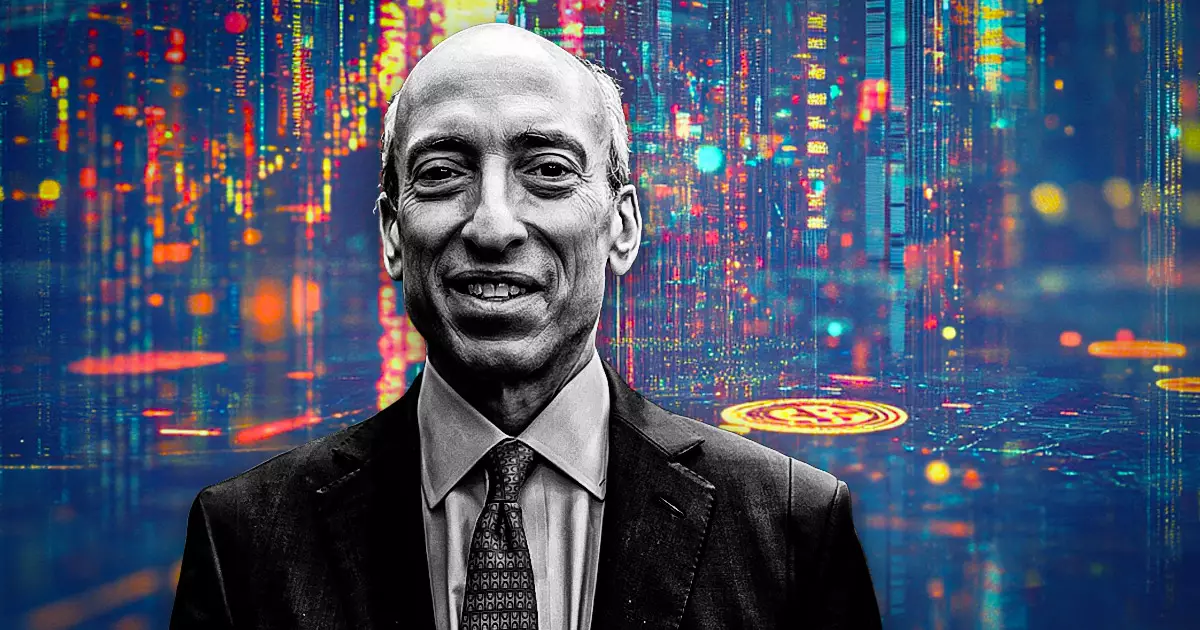As Gary Gensler prepares to step down as the Chair of the Securities and Exchange Commission (SEC), his tenure has been marked by significant friction with the cryptocurrency industry. In a recent interview with Bloomberg, Gensler reiterated his position regarding the pervasive issues within the crypto space, characterizing it as a domain “rife” with malefactors. Such statements have surged the tide of criticism against him from various cryptocurrency advocates who perceive his approach as overly antagonistic and dismissive of the potential of digital assets.
During his time in office, Gensler championed the SEC’s increased regulatory measures, citing nearly 100 enforcement actions initiated under his leadership. This figure stands in stark contrast to the 80 actions taken by his predecessor, Jay Clayton. Gensler cited high-profile cases, including action against infamous figures like Sam Bankman-Fried, to bolster his argument that the SEC is committed to protecting investors. However, it remains debatable whether these enforcement actions have created a more secure environment around cryptocurrency investments, or if they have simply served to stifle innovation and drive the industry further underground.
One of Gensler’s core contentions is that the crypto market lacks the substantial foundations associated with traditional financial sectors. He has likened many crypto projects—of which there are reportedly between 10,000 to 15,000 beyond Bitcoin—to high-risk ventures yielding timid returns for investors. He boldly stated, “I’ve been around finance for over four decades…I’ve never seen a field wrapped so much in sentiment and not so much about fundamentals.” Critics, including notable figures in the crypto sphere, argue that this perspective demonstrates a lack of understanding of the innovations and diverse business models emerging within blockchain technology.
Political Fallout and Community Backlash
As the SEC’s actions under Gensler’s stewardship have escalated tensions within the industry, some stakeholders have pointed to broader political ramifications. Coinbase’s Chief Legal Officer, Paul Grewal, accused Gensler of alienating crypto voters, suggesting that his perceived arrogance played a role in shifting political dynamics, particularly in swing states during recent elections. This disconnect raises questions about whether regulatory bodies are doing enough to engage with evolving markets—an important aspect as they assure investor protection while fostering innovation.
As Gensler prepares to vacate his position as SEC Chair on January 20, his comments and actions leave an indelible mark on the relationship between cryptocurrency stakeholders and financial regulators. The contention between the SEC and the crypto industry underscores a critical need for balanced dialogue—one that fosters both accountability and innovation. With his departure, many in the crypto community are hopeful for a shift in regulatory philosophy that recognizes the transformative potential of digital currencies rather than perceiving them solely through a lens of suspicion and hostility. The future of cryptocurrency regulation hinges on the ability of regulators to adapt and respond to a rapidly evolving financial landscape, striking a delicate balance between protecting investors and ensuring industry growth.


Leave a Reply